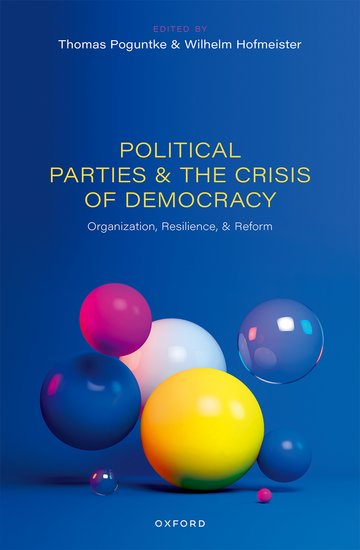Political Parties and the Crisis of Democracy: Organization, Resilience, and Reform
Edited by :
Thomas Poguntke,
and Wilhelm Hofmeister
Release date: Aug 2024
Oxford University Press


Democracy is in decline, and the share of world’s population living in freedom under democratic government has decreased considerably as authoritarian practices proliferate. Surprisingly, most of the analyses that study these developments give little attention to the role of political parties in the decline of democracy, although there is a broad consensus about the relevance of political parties for the functioning of democracy. How parties can contribute to democracy is best understood by looking at a very diverse range of cases in different parts of the world. Instead of taking a regional approach, which dominates the literature on political parties, this book takes a global perspective. It brings together experts from four continents, which opens up fresh comparative perspectives on the role of political parties in the democratic process. It asks how parties contribute to the consolidation of democracy, why they fail today, why new parties emerge and displace old parties, and also what parties need to do in order to survive cut-throat competition, above all with new (and sometimes not so new) variants of populist parties. The book takes a unique global focus, covering old and new democracies in different regions of the world. It covers Western and Central Europe, Asia-Pacific, Latin America and Africa, Turkey, and Israel. This includes presidential, semi-presidential, and parliamentary democracies, and also some countries where democracy is seriously threatened or eroding. It offers unique comparative perspectives combined with a detailed analysis of individual countries and their party systems. The book shows that parties are central actors for the consolidation of democracy, but that organisational reforms are necessary to cope with social change such as individualisation, the decline in party membership, and the impact of new media and modern communication, thus counteracting the fragmentation of party systems and the decay of democracy.











